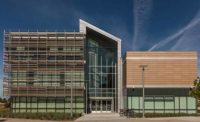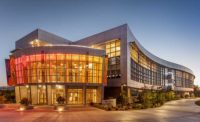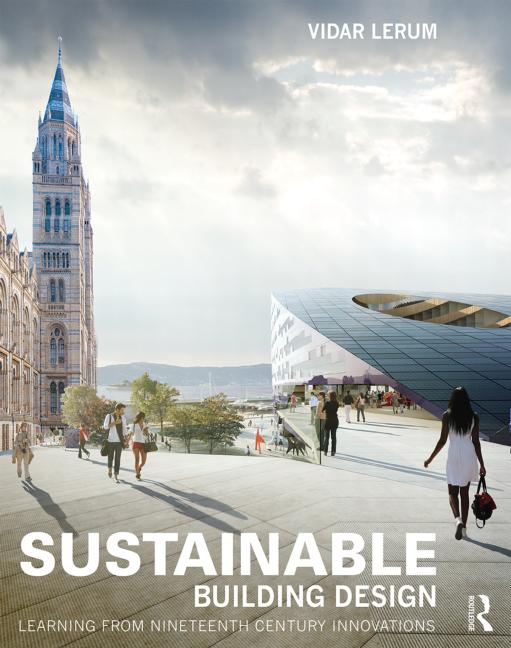Leers Weinzapfel Associates recently completed the Design Building at the University of Massachusetts Amherst, the first Cross Laminated Timber (CLT) academic building in the U.S. and the largest installation of wood concrete composites in North America. The $52M, 87,500-square-foot project, made possible through supplemental funding from the Massachusetts State Legislature, is a dynamic space of exchange, collaboration, and experiment. Uniting the university’s departments of Architecture, Landscape Architecture and Regional Planning, and the Building and Construction Technology program under one roof for the first time, the structure itself is a teaching tool for prescient sustainable design.
The building is organized around a skylit central commons that brings students together for lectures, exhibits, presentations, and informal gatherings. Studios, maker spaces and classrooms surround the central space that opens onto the street as a showcase for the design disciplines. The commons is capped by a green roof that comprises an outdoor learning environment and experimental space for the landscape department.
A demonstration of the construction process itself, columns and beams of glue-laminated wood, a floor of composite, exposed cross laminated timber plank and cast in place concrete, and the lobby’s “zipper truss” (developed in consultation with Equilibrium Consulting) all exemplify innovative timber engineering.
The building’s highly-efficient envelope of copper-colored, anodized aluminum panels and vertical windows suggests the colors and patterns of the region’s forests and trees. Surrounding landscaping by Stephen Stimpson Associates makes extensive use of native plants and paving materials. Dedicated mechanical equipment is zoned for optimal efficiency, and extensive glazing and skylights provide maximum daylight to the building’s interior, reducing the need for artificial lighting. Storm water management directs roof runoff to a “spring source” at the top of the site, filtering the water through bio-swales and timber dams to the site’s lower end and back to the Connecticut River. Suffolk was construction manager for the project, which is targeting LEED Gold certification.
“We imagined this building as a teaching tool for the design disciplines,” says Leers Weinzapfel Principal Andrea Leers, FAIA. “I know from my own teaching experience that there’s nothing more potent than being able to talk with students about the space around you—in this case, the building’s collaborative configuration, innovative structure, considered material and detailing choices, environmentally-driven site, and synergistic landscape concepts that define the project.”
“The Design Building is an extraordinary mixing bowl for the disciplines that focus on the design of the built environment,” says Steve Schreiber, FAIA, professor and chair, UMass Amherst Department of Architecture. “Students and faculty alike now productively collaborate in the beautiful light-filled common areas, studios, shops, and seminar rooms. Positioned in the center of campus, the building is a critical link in the university’s arts necklace”
America’s First CLT Academic Building

Photo courtesy of Albert Vecerka/Esto.

Photo courtesy of Albert Vecerka/Esto.

Photo courtesy of Albert Vecerka/Esto.
Looking for a reprint of this article?
From high-res PDFs to custom plaques, order your copy today!







